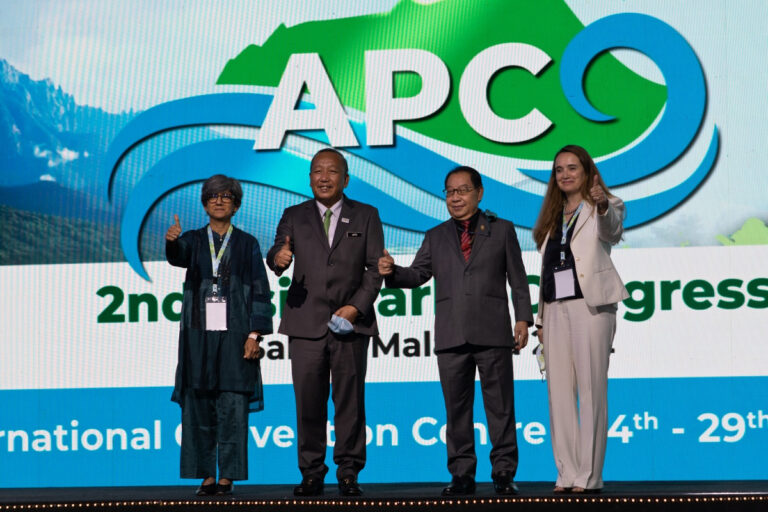Speaking at the opening ceremony, IUCN Deputy Director-General Dr. Gracel Aguilar emphasized that protected and conserved areas are critical to the survival of the planet. “Protected areas provide nature-based solutions to our health, food and water security, disaster risk reduction, poverty alleviation, and climate change,” Dr. Aguilar said. “Investing in protected areas is one of the best actions we can take to give hope to our future generations and our wonderful, wonderful planet.”
The conference is attended by representatives from around 50 countries representing government agencies, NGOs, indigenous peoples, youth, international organizations, academia and the private sector. Participation from indigenous peoples and local communities is particularly strong, with over 200 representatives participating.
“Since the modern concept of protected areas was born 200 years ago, these areas have contributed significantly to human conservation. But let us be honest with ourselves and admit that the environmental movement has also made mistakes. We have to recognize what we did,” Dr. Aguilar said. “In many cases, protected areas have excluded communities from their ancestral lands and harmed those who depend on them. This conflict still occurs in multiple regions of the world. That is why today I We would like to use the 2nd Asian Parks Conference as an opportunity to turn the page.”
The conference will be hosted by Sabah Parks and the Sabah State Government, in collaboration with IUCN and the IUCN World Commission on Protected Areas (WCPA), at the Sabah International Convention Center. This is one of the largest in-person meetings of environmental experts to be held in Asia since the start of the COVID-19 pandemic. Under the banner “Parks for Nature and People,” the Council emphasizes the many benefits that protected and conserved areas bring to society. It will be a forum to share expertise and experience, learn from Indigenous wisdom and perspectives, embrace new approaches and seek insights from youth leaders.
The Second Asian Parks Conference is expected to set the agenda for protected and conserved areas in Asia for the next decade. This is particularly timely as countries look to finalize and adopt a new global biodiversity framework later this year.

